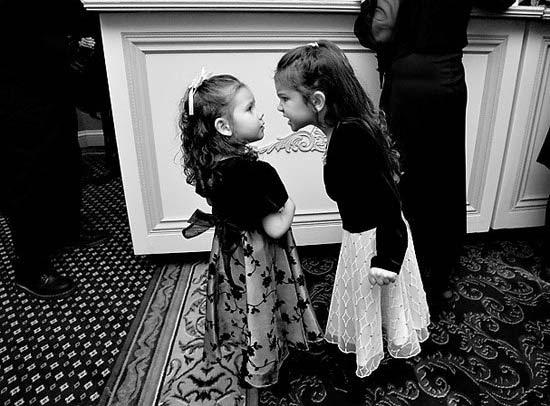
by Esoteric | Mar 19, 2012 | Buddha

“I never see what has been done; I only see what remains to be done.”
The Buddha reflects a profound perspective on the nature of existence and personal growth. Let’s explore its meaning in more detail:
The quote suggests that the Buddha, in his enlightened state, did not dwell on past accomplishments or get caught up in nostalgia or complacency. Instead, he focused his attention on the present moment and the work that still lay ahead. It signifies a mindset of continuous improvement, learning, and striving for personal and spiritual development.
“I never see what has been done”: This part of the quote suggests that the Buddha did not allow himself to become attached to past achievements or dwell on past successes. He recognized that dwelling on what has already been accomplished can hinder progress and limit one’s potential for growth. Instead, he embraced the impermanent nature of life and the need to continually move forward.
“I only see what remains to be done”: This phrase signifies the Buddha’s forward-looking mindset. It implies that he saw life as an ongoing journey, a path of self-discovery, and spiritual awakening. By focusing on what remained to be done, the Buddha maintained a sense of purpose, dedication, and commitment to the teachings and practices that lead to enlightenment. It emphasizes the importance of setting goals, pursuing self-improvement, and striving for a higher state of being.
This serves as a reminder for us to adopt a similar outlook in our own lives. It encourages us to embrace a mindset of continuous growth, learning, and self-reflection. Rather than becoming complacent with past accomplishments, the quote inspires us to remain curious, motivated, and open to new experiences and challenges.
In Buddhism, the concept of impermanence is central. It aligns with this teaching by reminding us that everything in life is subject to change, including our own personal journey. By focusing on what remains to be done, we can cultivate a sense of resilience, adaptability, and a commitment to our own inner transformation.
Furthermore, this quote invites us to be fully present in each moment and to recognize that true fulfillment lies not in reaching a final destination but in the process of continuous growth and self-discovery. It encourages us to be mindful of the tasks, responsibilities, and opportunities that lie before us, appreciating them as valuable opportunities for progress and personal development.
It encourages us to let go of attachment to past accomplishments, embrace the impermanence of life, and focus on the present moment and the work that remains to be done. By adopting this perspective, we can cultivate a sense of purpose, commitment, and personal fulfillment in our own journeys of self-discovery.

by Esoteric | Mar 19, 2012 | Buddha

“An insincere and evil friend is more to be feared than a wild beast; a wild beast may wound your body, but an evil friend will wound your mind.”
It is a cautionary message about the potential harm that can come from insincere and malicious friendships.
Highlights the dangers associated with deceitful and malevolent companionship. It suggests that while encountering a wild beast may pose a physical threat, the harm inflicted by a false or harmful friend can have a more profound and lasting impact on our well-being, particularly on our mental and emotional state.
The analogy between an insincere friend and a wild beast serves to emphasize the hidden dangers that can lurk within our social circles. While a wild beast can cause physical harm, its actions are often driven by instinct or survival, whereas an evil friend intentionally inflicts harm on our mental and emotional well-being. The quote draws attention to the potential for manipulation, betrayal, deceit, and toxic behavior that can arise from unhealthy relationships.
The harm caused by an insincere and evil friend is highlighted as being directed towards our mind. Unlike physical wounds, which may heal over time, wounds to the mind can have long-lasting effects on our self-esteem, trust, and overall mental well-being. Such wounds may include emotional manipulation, psychological abuse, betrayal, or the erosion of our values and beliefs.
It serves as a reminder to be cautious in selecting our friends and to be discerning in assessing their intentions and character. Underscores the importance of cultivating authentic, supportive, and trustworthy relationships while avoiding those that may have negative influences on our mental and emotional health.
In Buddhist teachings, the importance of wise companionship is often emphasized. The Buddha advised his followers to associate with individuals who possess qualities such as kindness, honesty, and wisdom, as they contribute to our growth and well-being. Conversely, harmful relationships can hinder our personal development and lead us astray from the path of virtue and inner peace.
In summary, this is a warning against the dangers of insincere and malevolent friendships. It reminds us to be vigilant in choosing our companions and to prioritize relationships that nurture our well-being and support our spiritual and emotional growth. By surrounding ourselves with sincere, positive influences, we can cultivate a healthy and harmonious social environment that contributes to our overall happiness and inner peace.

by Esoteric | Mar 19, 2012 | Buddha

“A jug fills drop by drop.”
The saying “A jug fills drop by drop” attributed to the Buddha conveys a profound message about the power of consistent effort, patience, and the accumulation of small actions or progress over time. Here’s an elaboration on its meaning:
The image of a jug being filled drop by drop suggests that significant achievements or transformations often occur through gradual, persistent, and incremental efforts. Just as a jug is filled with liquid one drop at a time, so too can we make progress in our personal growth, learning, or endeavors by consistently and diligently applying ourselves.
This saying emphasizes the importance of recognizing that great things are often built through small, consistent steps rather than expecting instant or dramatic results. It encourages us to be patient, committed, and mindful of the small actions we take each day, as they contribute to the larger outcomes we seek.
In our fast-paced world, where we are often drawn to instant gratification and quick results, this saying serves as a reminder to embrace the process, value small achievements, and remain dedicated even when progress may seem slow or imperceptible. It encourages us to focus on the present moment, fully engaging in the tasks at hand, and trusting in the cumulative effect of our efforts.
This teaching is applicable to various aspects of life. Whether it’s personal growth, learning a new skill, building relationships, or working towards a goal, the saying reminds us that progress is made by consistently putting in the effort and allowing the results to unfold over time. It invites us to let go of the desire for immediate success and to appreciate the beauty of the journey itself.
Furthermore, the saying can also be seen as a metaphor for cultivating positive habits or virtues. Just as a jug is filled with each drop, our character and virtues are developed through repeated small acts of kindness, compassion, honesty, and mindfulness. Each positive action contributes to our overall growth and transformation, gradually shaping us into better versions of ourselves.
In summary,this quote encourages us to embrace the power of consistent effort and patient perseverance. It reminds us that lasting progress and meaningful achievements are often the result of small, incremental steps taken consistently over time. By focusing on the present moment and valuing the cumulative effect of our actions, we can cultivate a sense of patience, dedication, and fulfillment in our endeavors.

by Esoteric | Mar 19, 2012 | Buddha

“Holding on to anger is like grasping a hot coal with the intent of throwing it at someone else; you are the one who gets burned.”
Powerful message about the harmful effects of holding onto anger. Here’s an interpretation of its meaning:
This analogy suggests that harboring anger and seeking to inflict harm on others actually ends up hurting oneself more than anyone else. When we hold onto anger, we carry its negative energy within us, causing suffering to our own mental and emotional well-being.
The Buddha’s teachings emphasize the importance of cultivating inner peace, compassion, and understanding. This quote highlights the destructive nature of anger and its potential to consume us if we allow it to persist. By holding onto anger, we subject ourselves to its negative consequences, such as increased stress, resentment, and a loss of inner harmony.
The analogy of grasping a hot coal signifies the self-destructive nature of anger. Just as holding onto a burning coal burns our own hand, holding onto anger burns our own mind and heart. It reminds us that the act of nurturing anger and seeking to hurt others ultimately harms ourselves, both mentally and spiritually.
The Buddha Encourages us to let go of anger, to release our attachment to grievances and resentments, and to choose a path of forgiveness, understanding, and inner peace. It teaches us that by letting go of anger, we free ourselves from its burden and open the door to healing, personal growth, and harmonious relationships.
In Buddhism, anger is considered one of the three poisons, along with ignorance and attachment. The teachings suggest that by recognizing the destructive nature of anger and cultivating qualities such as mindfulness, compassion, and patience, we can liberate ourselves from suffering and cultivate a more peaceful and compassionate way of being.
In summary, the quote serves as a reminder of the harmful effects of holding onto anger. It encourages us to let go of resentment, forgive others, and cultivate inner peace. By doing so, we not only avoid inflicting harm on ourselves but also create a positive ripple effect in our relationships and contribute to a more harmonious and compassionate world.

by Esoteric | Mar 19, 2012 | Buddha

“Health is the greatest gift, contentment the greatest wealth, faithfulness the best relationship.”
“Health is the greatest gift”: This statement emphasizes the immense value of good health. It recognizes that physical, mental, and emotional well-being are essential foundations for a rich and fulfilling life. Health enables us to engage fully in our daily activities, pursue our goals and aspirations, and experience a sense of vitality and overall well-being. Without good health, other aspects of life may lose their significance. Thus, the quote reminds us to prioritize self-care, adopt healthy habits, and appreciate the gift of well-being.
“Contentment is the greatest wealth”: This phrase delves into the idea that true wealth lies not in material possessions or external achievements, but in an inner state of contentment and satisfaction. It highlights the importance of cultivating a mindset of gratitude, finding joy in the present moment, and appreciating the simple pleasures of life. Contentment shifts our focus from incessant striving and comparison to embracing what we already have. It acknowledges that genuine wealth is not measured by the accumulation of external resources but by a deep sense of inner peace and fulfillment.
“Faithfulness is the best relationship”: This statement underscores the significance of trust, loyalty, and commitment in building meaningful and fulfilling relationships. Faithfulness extends beyond romantic partnerships and encompasses all connections built on trust, including friendships, family relationships, and professional collaborations. It emphasizes the importance of being reliable, honest, and supportive to those we care about. By practicing faithfulness, we cultivate strong and lasting relationships that foster mutual understanding, growth, and harmony.
At a deeper level, this quote invites us to reflect on our values and priorities in life. It encourages us to recognize the inherent worth of health, contentment, and faithfulness as essential elements for a fulfilling existence.
When we understand the true value of good health, we are inspired to take care of our physical, mental, and emotional well-being. By cultivating contentment, we shift our perspective and find fulfillment in the present moment, appreciating what we have rather than constantly seeking external validation or material gain. Faithfulness in relationships fosters trust, deep connection, and a sense of belonging, leading to greater happiness and overall satisfaction.
In essence, Buddha urges us to align our values and actions with the recognition of the significance of health, contentment, and faithfulness in living a meaningful life. It encourages us to prioritize self-care, gratitude, and the nurturing of meaningful relationships. By embracing these values, we can enhance our well-being, find greater satisfaction, and create a more fulfilling and harmonious existence.






